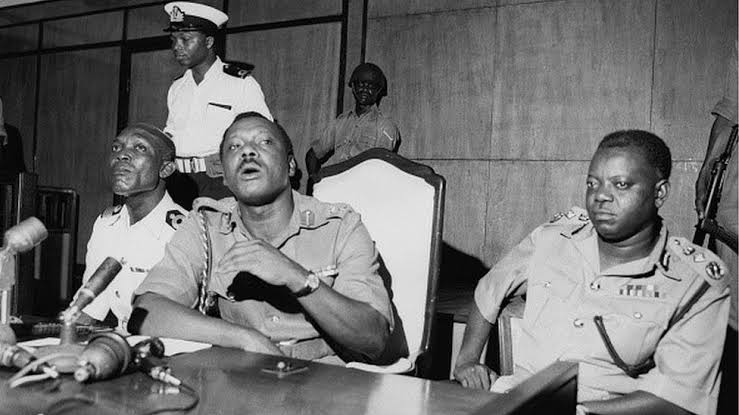The 1966 coup, which shook Nigeria, occurred 58 years ago, yet misconceptions about its origins persist. The recent denial by the President General of Ohanaeze Ndigbo, Chief Emmanuel Iwuanyanwu, regarding allegations that Igbo people were responsible for the coup underscores the need to clarify historical truths.
The coup, which began on January 15, 1966, led to the deaths of 22 people, including the prime minister, senior politicians, and army officers. It was orchestrated by rebellious soldiers, including Kaduna Nzeogwu and others, who attacked several cities and blockaded rivers before being subdued. General Aguiyi-Ironsi was falsely accused of involvement, leading to a period of upheaval and eventually the Nigerian Civil War.
Chief Iwuanyanwu’s recent statement emphasizes that the Igbo people were not responsible for the coup, categorizing it as a purely military affair, similar to other coups in the country’s history. He expressed disappointment over false accusations and reaffirmed Ohanaeze Ndigbo’s commitment to the development and dignity of the Igbo people and Nigerians as a whole.
Regarding the recent retreat in Enugu, which was falsely rumored to involve discussions about apologizing to the Fulani people, Chief Iwuanyanwu clarified,
“I was shocked to read a voice mail message which was circulating all over the country and all over the world alleging that we held a meeting in Enugu and that the meeting was poorly attended where the decision was taken that we are going to Sokoto to apologise to the Fulanis over the death of Ahmadu Bello and Tafawa Balewa and other Northerners.”
He emphasized that the Southeast Governors were not invited due to their busy schedules, but the meeting was well attended, with over 200 participants and global recognition.
This reaffirms the importance of accurate information and dialogue in addressing historical narratives. Chief Iwuanyanwu’s stance reflects a commitment to truth, progress, and the preservation of dignity, emphasizing the need for authentic discourse in the pursuit of positive change.
